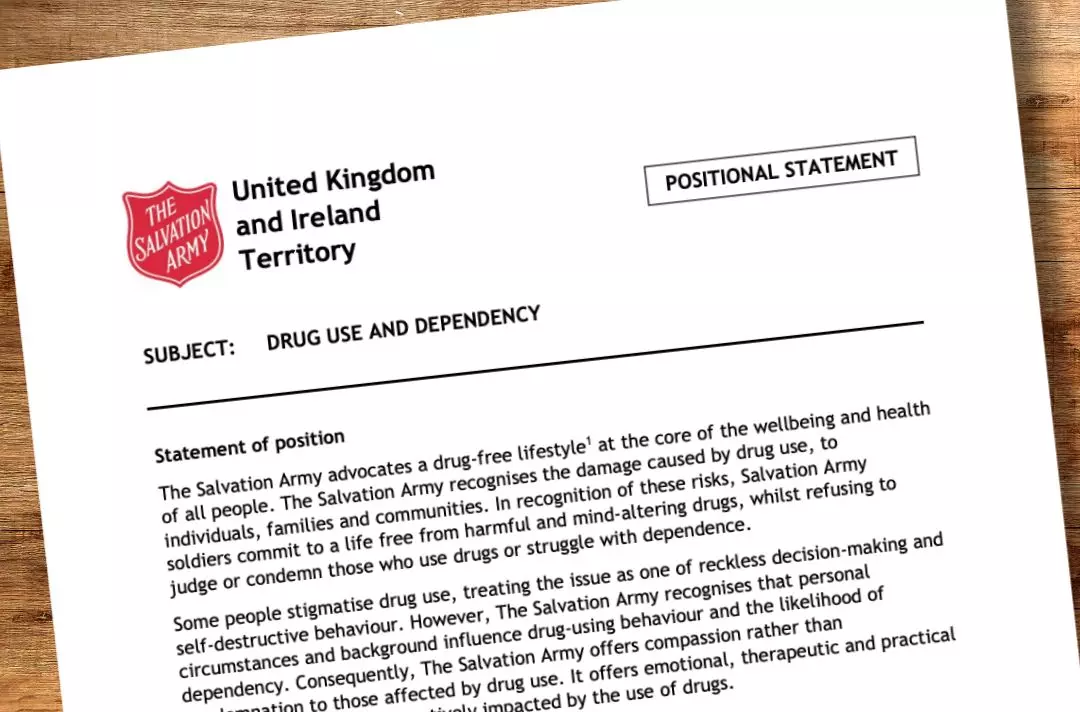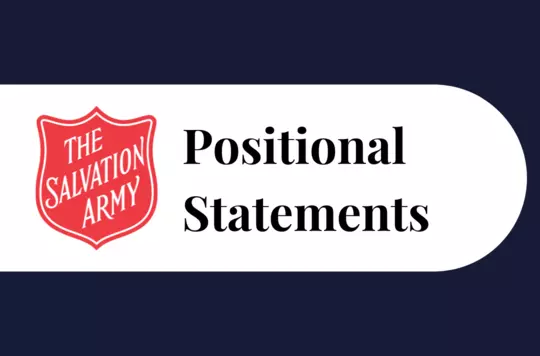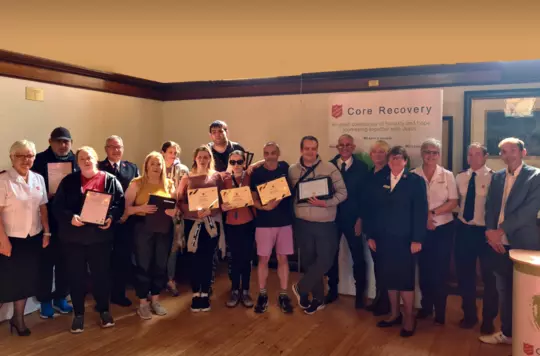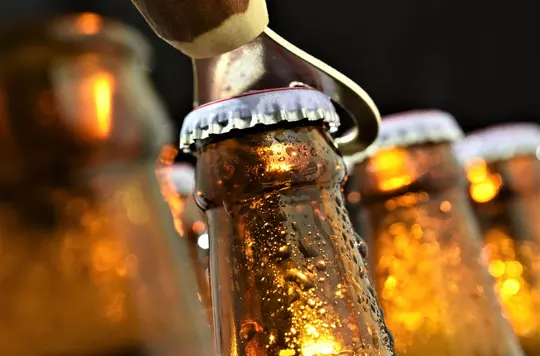31 August 2024
Reducing harm and stigma
Major Will Pearson

Major Will Pearson talks to Salvationist about the territory’s new positional statement on drug use and dependency.
This week, the UK and Ireland Territory published a positional statement on drug use and dependency.
Positional statements represent the Army’s official position. They are prepared by an international or territorial Moral and Social Issues Council (Masic) and provide information and guidance to Army members. The Army does not expect the same level of adherence from non-members and does not condemn anyone who does not hold the same beliefs.
Assistant Territorial Addictions Officer Major Will Pearson – a GP and member of Masic – unpacks some of the thinking around drugs and harm reduction.
What is addiction?
Addiction refers to any harmful behaviour that a person finds temporary pleasure or relief in, and therefore craves, but cannot give up. This could involve cigarettes, alcohol, coffee, illegal drugs, video gaming, gambling or sex.
A defining component is a lack of choice. It’s partly genetic but seems to be influenced more by environment, childhood and experiences of trauma.
How does the Army help people struggling with addiction?
We have three addiction services within Homelessness Services, as well as outreach services, corps and community services that provide support. We follow a harm reduction approach.
What is harm reduction?
It aims to minimise the negative impacts of a behaviour, without requiring someone to stop their behaviour as a condition of support. With regards to drugs, it acknowledges that some ways of using drugs are safer than others.
Can you give a practical example?
Needle and syringe provision.
People might worry someone would use drugs more as a result or that the Army is condoning drug use, but that’s not how addiction works: when someone is dependent on a drug, they are going to use that drug regardless.
We provide injecting equipment in about a dozen centres. It is a safe environment that reduces harm and minimises risk.
How does that fit with the Army as an abstinence Movement?
The automatic reflex can be to turn this into a dichotomy of abstinence versus harm reduction, but The Salvation Army is both. Our programmes consider abstinence to be the ultimate goal, but harm reduction is an essential and pragmatic starting point.
To put it simply: why would we not want to reduce harm?
So it’s about compassion not compromise?
Yes. It’s about journeying with people. People who are dependent on drugs are high on the list of those stigmatised by society.
How much damage can shame cause?
If someone knows you disapprove, they won’t feel safe and won’t trust or listen to you, even when you’re trying to help.
Shame can also cause isolation. We’re called to reconcile everyone not just with God but each other. This is an opportunity for the Army to provide communities where people can feel safe and welcomed, and rebuild their lives.
In psychology, there are what’s known as core conditions. One is unconditional positive regard. It has a therapeutic effect. For Christians, that’s synonymous with God’s unconditional love.
How significant is this positional statement?
It shows our commitment to serving others without discrimination.
It’s a territorial positional statement, not international, so it doesn’t mean everyone in the Army is on the same page. Masic’s aim is to help Salvationists in this territory engage in moral and social issues where they are.
What can individuals do to help?
If someone says they have a problem with drugs, listen to them and learn what their life is like. Practise compassionate curiosity. Try not to have preconceived ideas.
Be careful about the language you use. Even the word ‘addict’ is a negative label. It defines someone, but they are so much more than that. Instead of ‘addict’, say ‘person who uses drugs’. Instead of ‘clean’, say ‘in recovery’.
The Addictions Service has started training sessions for corps. For details, email addictionservice@salvationarmy.org.uk.
Core Recovery is also an accessible and effective model of church that can help people in recovery. To find out more, email corerecovery@salvationarmy.org.uk.
Written by

Major Will Pearson
Assistant Territorial Addictions Officer
Discover more

Information and guidance about moral and social issues for members of The Salvation Army.

Major Lynden Gibbs and Major Nicky Watson help Simon Hope understand The Salvation Army’s Core Recovery model.

Captain (Dr) Will Pearson, a member of the Moral and Social Issues Council, considers the rise of alcohol-free drinks in society.

Helping Salvationists engage in moral and social issues in their communities.